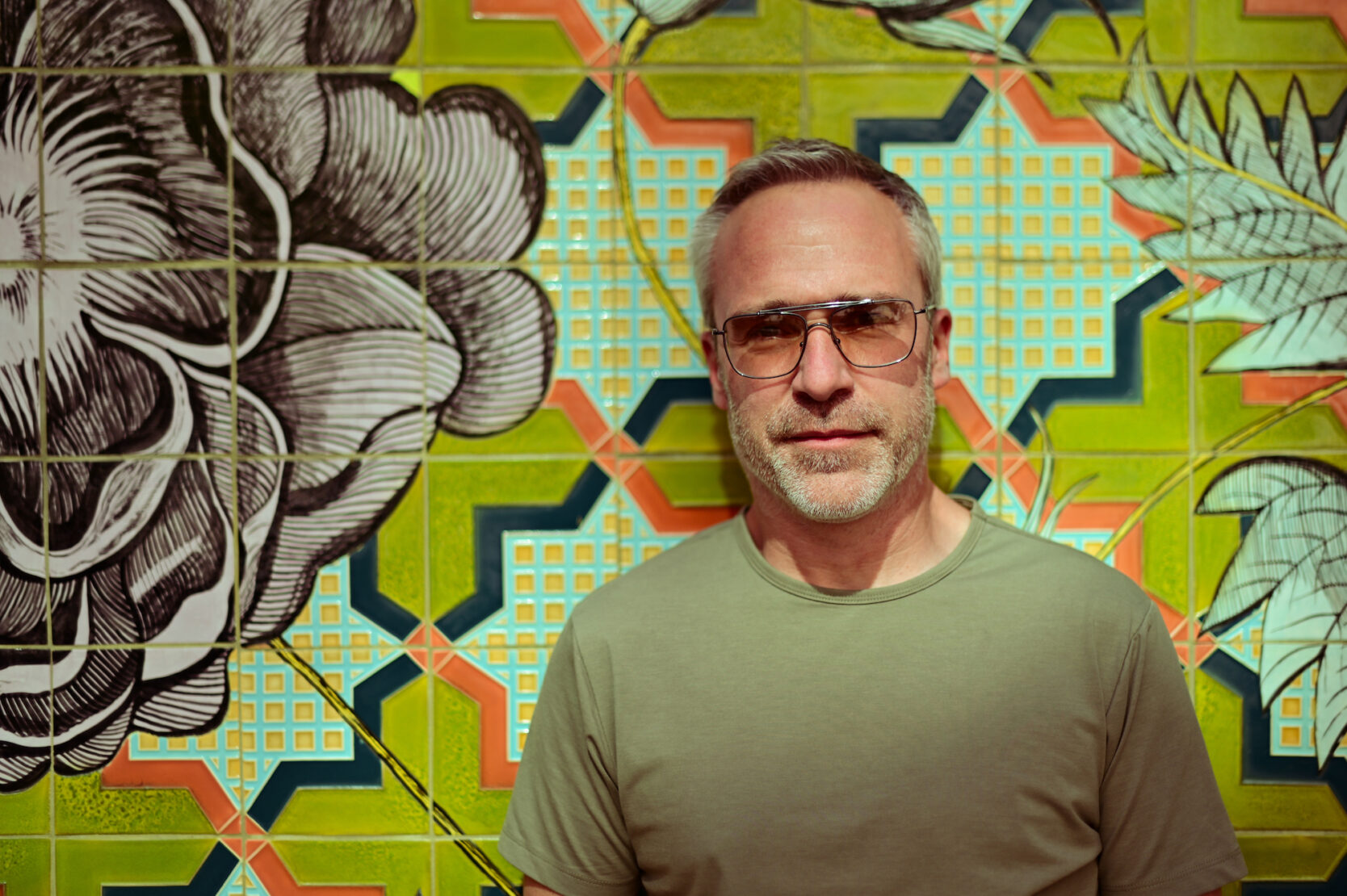Jace Allen has simple goals.
“I think for us to survive and thrive as a country, we need to not look inward, but outward,” he explains to SPIN.
The singer-songwriter, whose new album, Taking Sides, was released on July 21, makes music with a purpose. But this isn’t purpose in the sense of making songs about important causes — which he does — but purpose in the sense of using the money he makes from recording his music to help raise funds and awareness for causes that actively make lives better. While Allen’s passion has been criminal justice reform, he found a unique opportunity to add another cause to support on Taking Sides: the victims of Russia’s invasion of Ukraine.
Taking Sides begins with “Hail Federate,” which initially wasn’t set to be featured on the album at all. Allen was putting the finishing touches on the album with Matt Sorum from Guns N Roses (whom Allen co-owns a recording studio with in Palm Springs) when the war broke out. Allen felt heartbroken and helpless, so he connected with a former associate from the war-ravaged country who had a nonprofit organization supporting the nation, Project 1K. At the last minute, Allen postponed his album, recorded a music video, and used the song to contribute funds to the nonprofit.
Allen’s draw to charity and awareness comes from his own background. Growing up in Detroit with adopted parents, he often wondered where each meal would come from. Those insecurities informed his entire music career since retiring from his day job. An injury as a young adult forced him away from his first passion of drumming as a young adult, but his success in investments allowed him to hang up his suit and tie and return to his first passion. Allen needed another reason to pursue music, so he decided to infuse his work with an importance — no matter how many people heard his songs. His debut album (especially the singles with Payge Turner) is doing strong numbers, but that satisfaction wasn’t enough for Allen.
“I think everybody, at some point in their life, just needs somebody to come along and say ‘It’s going to be OK and here’s a little biscuit of luck,’” Allen explains, chuckling at the fluffy, buttery metaphor. “I’ve certainly had many biscuits, and I want to see how many biscuits I can give away before I’m dead.”
Allen’s main philosophy centers around the basic idea of “How can I make the world a better place?” Music is what animates him, but helping people who ran into bad luck or made a mistake is what illustrates that animation. That passion started when he visited a maximum security prison in Colorado during his days as a venture capitalist.
“When the prisoners I visited started going through some of their backgrounds and how they were brought up and what they faced, it mirrored my life in an eerie way that made me think ‘Huh, maybe I should have been on the other side of the line,’” Allen says. “I’ve had some privilege in my life and some good luck, and that’s the only thing that separated me from the prisoners I met.”
Taking Sides reflects Allen’s passion, but it’s the work he does and the funds he raises that he hopes leave this planet better than he found it. But rather than drown in his own praise, Allen sees some of what he does as, almost paradoxically, selfish.
“I get more joy out of making people happy than pretty much anything else I do, and selfishly, improving peoples’ lives makes me feel better,” he says. “It makes me have hope for the future and the country. If I can do it, maybe somebody else can do it.”
In addition to his music, Allen runs a criminal justice reform nonprofit with his wife that focuses on keeping former convicts out of prison. But while nonprofits are often great for their causes, Allen (who once held a swath of power as a venture capitalist) knows that money speaks louder than almost anything else. Ultimately, his goal is to find the funding and the logistical tools to make the world (or at least the country) a better place.
“Anybody who thinks that it’s as easy to get ahead now as it was 30, 40, 50, 100 years ago is just wrong,“ Allen says. “They’re deluding themselves. The politicians all say ‘America’s the greatest place’ or whatever, but it’s just not true.”




